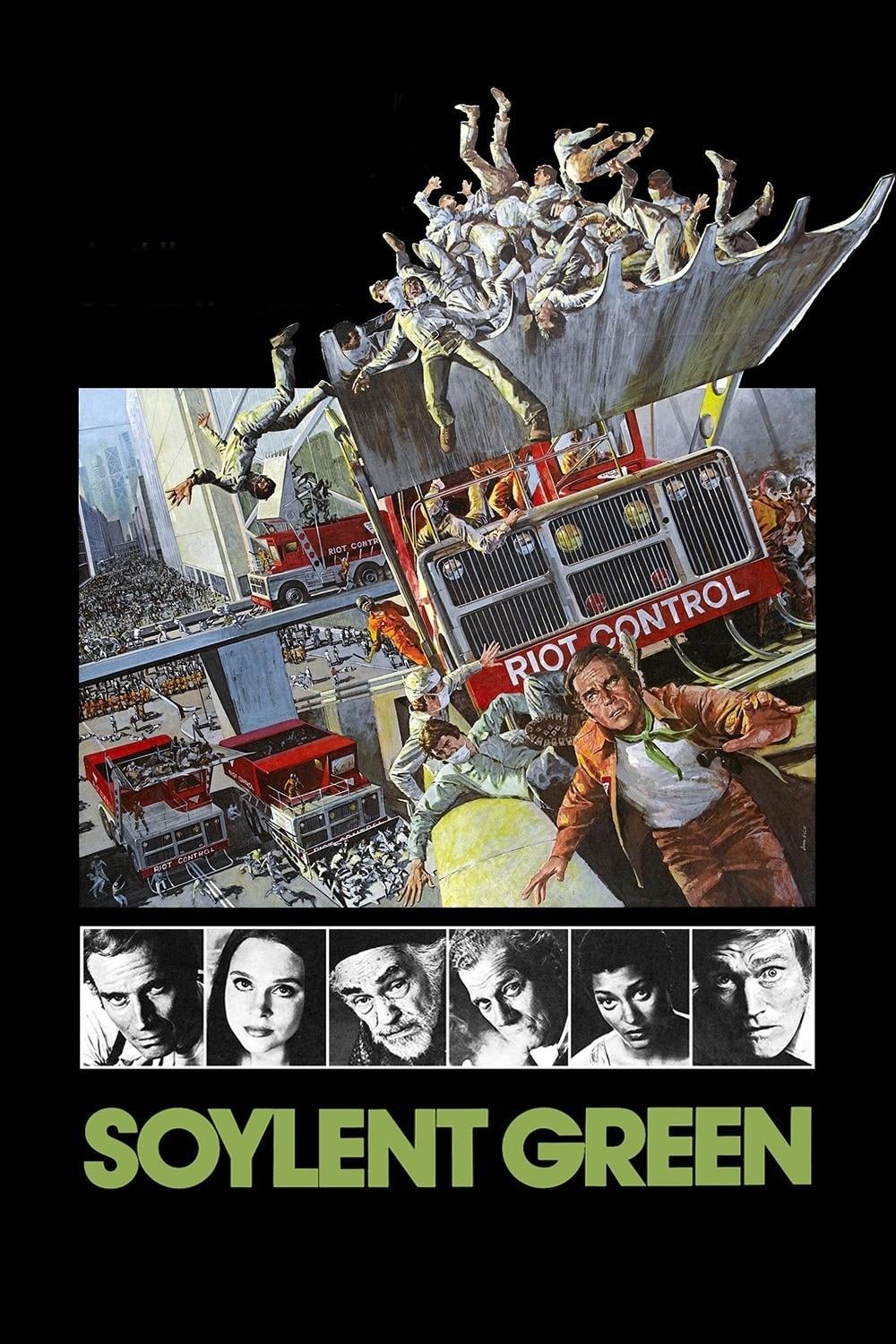
In the year 2022, overcrowding, pollution, and resource depletion have reduced society’s leaders to finding food for the teeming masses. The answer is Soylent Green.
09 Feb Soylent Green (1973)
Empty Calories
I remember thinking this was vacuous when it was new. Seeing it now, it seems to have lost even more value. Many films work in spite of bad writing, poor acting and casual production values, but not this one because — I surmise — that it is simply bad science fiction. This was sent into the world with the supposition that its clever vision of the future plus a ‘surprise‘ ending would carry it.
The futures in better science fiction have more than one simple extrapolation. But here we have only the one: the world has become overpopulated and hungry. That’s it. Greedy corporations figure out the obvious supply and demand equation: turn people into food. Many people not in the conspiracy seem to know it; they just need proof. But oddly, Heston‘s character thinks that because he has seen the factory he has proof?
And Robinson in his last role is understandably dull.
The ‘girl‘ is troubling. She is ‘furniture‘ a bedmate that comes with the upscale apartment of a character. We see many of these girls, all abused. The best thing that happens to her is Heston‘s character might rescue her, so that she is merely denigrated, less physically abused. She is played by an appropriately dull busty actress with deferential poise and long red hair. That her future with the cop would be seen as a saviour is embarrassing today.
As it happens, this is the first of the films I see that I will be modelling for our web project:
Though the main detective (our designated on-screen observer) is Heston‘s character, Thorn, the main action takes place with his partner, a researcher played by Robinson, Sol Roth. He is a second detective, one folded in who discovers things in parallel. He’s Jewish, a man of the people of the Book who cherishes books. He is actually called a ‘book,‘ the same way the girl is ‘furniture.‘ (The reason books have become so rare in only a generation is not explained.)
Thorn provides a book that indicates something important. Sol takes the book and his insight to an underground group of similar ‘books‘ who support a sort of revolutionary movement to preserve truth and insight. Sol learns more about this important thing (which is not yet revealed to us), and is discouraged enough to end his life. So he goes to a suicide facility.
Two folds: once in the suicide facility, he is given the drug and the gift of seeing movies in his last moments. Thorn, our primary surrogate observer, gets an unauthorised opportunity to witness this as well. These inner films are designed to be the fulcrum of the movie, because the way the film starts is through an overlong sequence of out-of-narrative films. Ted’s law applies: these first movies are lifeless, even despondent, then we have the movie proper, then we have these ‘reward‘ movies.
(Clearly, this was influenced by ‘A Clockwork Orange.‘)
Its is stretch to include the fact that Sol went to this even with real food in his belly, the first real food in decades and that he is consciously starting the process of becoming himself artificial food. But I include it anyway, because that was part of my experience.
I see that a remake is on the way. Good. This could be a great structure for a film.
Posted in 2011
Ted’s Evaluation — 2 of 3: Has some interesting elements.


No Comments